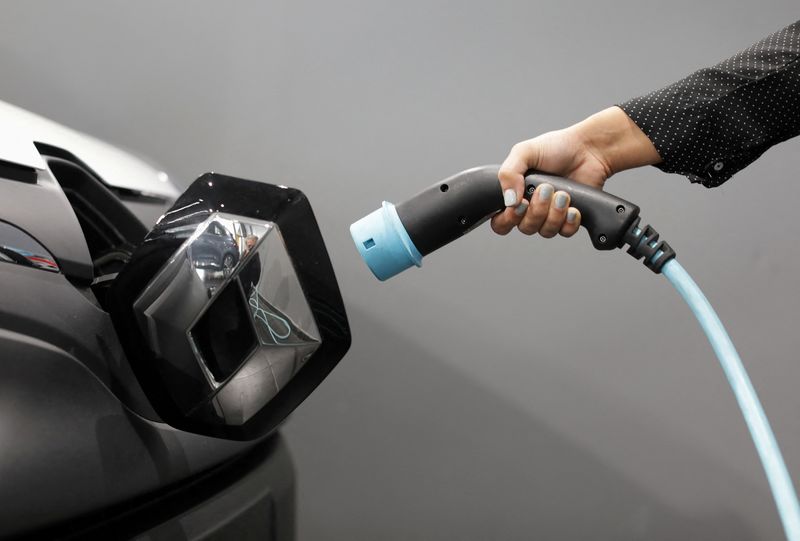Investing.com -- In August, new car sales across the European Union dropped by 18.3%, marking the lowest levels seen in three years, according to data from the auto industry body, Reuters reported on Thursday.
This decline was driven by double-digit losses in major markets like Germany, France, and Italy, along with a sharp fall in electric vehicle (EV) sales.
This marks the fourth straight month of declining EV sales, prompting the European Automobile Manufacturers’ Association (ACEA) to call for “urgent action” to reverse the trend.
The association urged the EU to introduce immediate relief measures, particularly before the new CO2 emissions standards for cars and vans take effect in 2025.
Sales of fully electric vehicles (EVs) fell by 43.9% in August, with major markets like Germany and France recording steep declines of 68.8% and 33.1%, respectively. Plug-in hybrid vehicle registrations also took a hit, falling by 22.3% across the 27-nation bloc, the report added.
The region’s top automakers—Volkswagen (ETR:VOWG), Stellantis (NYSE:STLA), and Renault (EPA:RENA)—also reported year-over-year sales declines of 14.8%, 29.5%, and 13.9%, respectively.
Overall car sales in Europe remain below pre-pandemic levels, and Volkswagen (ETR:VOWG_p) has suggested this trend may persist for some time.
Electric vehicle manufacturer Tesla (NASDAQ:TSLA)saw its sales plummet by 43.2% in August, while China’s SAIC Motor also reported a decline of 27.5%.
A contributing factor to falling EV sales is inconsistent policies on green incentives across the EU, coupled with high tariffs aimed at curbing the influx of cheaper Chinese EVs, which may be inflating prices.
To try to revive the market, Germany agreed in September on tax deductions of up to 40% for companies on their EV sales..
However, the advocacy group Transport & Environment remains optimistic, predicting that battery electric vehicles will capture between 20% and 24% of the market by 2025, largely due to anticipated lower prices.
Meanwhile, hybrid electric vehicles (HEVs) have gained popularity as a more affordable middle ground between fully electric and combustion-engine vehicles. HEV sales rose by 6.6% in August, giving them a market share of 31.3%, the report added.
